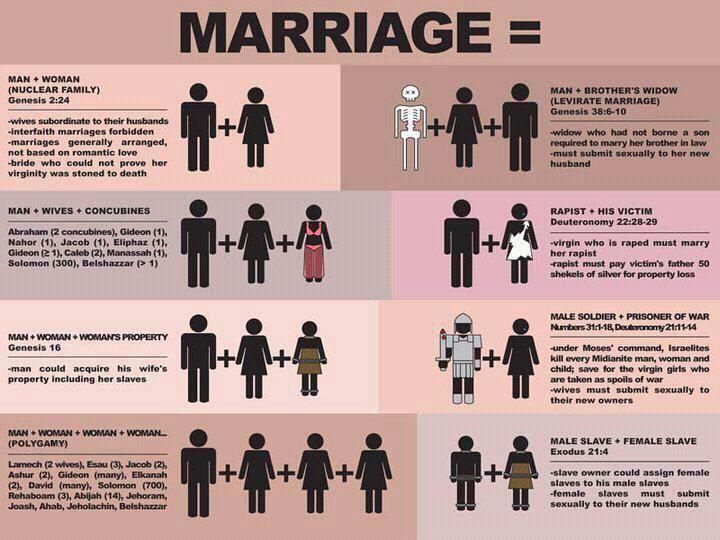kalikshama
Posts: 14805
Joined: 8/8/2010
Status: offline

|
quote:
It depends on if you believe the bible are the words of God, whether they be those he himself wrote or a man was inspired by God to write and you have faith in God
or if you think the bible is just a book written by man.
I've been reading a lot about problems with translations recently.
http://www.holisticpolitics.org/NarrowPath/HellError.php
The popular vision of Hell is a mix of mistranslation, pagan influence, and intentional myth designed to intimidate the masses. The picture in the Bible is more complex, and closer to common sense notions of justice. Over the course of this chapter we will look at the four words which get translated as “hell” in the King James Bible. We’ll expose the dishonest slight of hand used by the translators to make the Old Testament account match the later vision. We’ll look at many passages which belie the idea that the wicked go straight to Hell and punishment after death, while earnest Believers go straight to the pearly gates above. Indeed, we’ll start with the many passages which state that the dead go nowhere supernatural at all! The Bible says the dead “sleep.”
http://www.bokorlang.com/journal/18bible.htm
...Another problem inherent in Bible translation is comprehension of the intended meaning. Here, in fact, there are at least three problems. First, there is the problem of understanding the ancient languages in which the Bible was written. No one who spoke those languages is around to tell us what they mean. We all know that languages continually change over time. New words are always being added and others take on different or added meanings. For example, only recently have we begun using the word 'Internet' as part of the everyday speech. And when we hear the word 'cool' in a conversation today, it is not always referring to the weather. Therefore, it is obvious that words do not have only one meaning, and many are not used in the same way that they were used in the past. It is also well known that even modern Greeks and Israelis cannot understand the Bible from its original manuscripts; they need a translation. However, to understand the Bible, words must be studied in all the places where they occur in available writings and compared with similar words in related languages. Then, we might be able to understand or guess their meaning. Nevertheless, we should bear in mind that of the Bible expected to be understood. The Bible is not a collection of cabalistic writing or of Delphic oracles. As Nida says, "the writers of the Bible were addressing themselves to concrete historical situations and were speaking to living people confronted with pressing issues" (ibid, 7). Thus, we should assume that the writers of the Bible expected to be understood, and also that they intended one meaning and not several, unless an intentional ambiguity is linguistically 'marked.'
There is also the problem of cultural understanding. With an imperfect knowledge of ancient cultures it is not always possible to understand references of various kinds. Bible scholars are continually learning things about ancient Israel and the Near East that can help us understand the historical and cultural context out of which the Bible emerged. For example, we understand much more clearly today the way the various social classes interacted in the ancient world, as well as the more intimate workings of families, clans and tribes in ancient Israel. Such discoveries sometimes affect how we understand the words and the stories of the Bible. In addition, archeologists continue to find documents and libraries that can help translators understand the ancient Hebrew and Greek languages better, and so help them translate the Bible more accurately. For instance, the King James Version translates 1 Samuel 17.22 like this:
"And David left his carriage in the hand of the keeper of the carriage, and ran into the army."
The translators had difficulty with one of the Hebrew words in the manuscripts they used, and translated "his carriage" and "keeper of the carriage" based on the context of the narrative. As translators learned more about the Hebrew language and its vocabulary they understood that the verse did not talk about David's 'carriage,' but about the 'carried things' or 'baggage' that he had with him for the soldiers in the army. And so the translators of the Revised Standard Version (published in 1952) were able to translate the same verse more accurately:
"And David left the things in the charge of the keeper of the baggage, and ran to the ranks" (http://www.biblelearning.org)
At this point, we should mention that even if translators know the cultural setting of the Biblical era, it is very hard for them to reconstruct this cultural setting in which the writing first took place since there are great differences between it and the current one.
The third and most important problem in understanding the Bible is the spiritual problem. "The natural mind does not receive things of the Spirit of God" (1 Cor 2:14). Anyone who knows God has had the experience of reading a Bible passage a hundred times and then suddenly seeing what it means. As we grow in spiritual understanding, the Bible continually reveals its deeper meanings. The Holy Spirit guides us into all truth. Who then would claim to understand every word of the Bible? Hidden gems may well lie beneath the surface of its every sentence. (http://ourworld.compuserve.com/homepages/robert_beecham/whichbib.htm)
_____________________________
Curious about the "Sluts Vote" avatars? See http://www.collarchat.com/m_4133036/mpage_1/key_/tm.htm#4133036
|



 Profile
Profile




 New Messages
New Messages No New Messages
No New Messages Hot Topic w/ New Messages
Hot Topic w/ New Messages Hot Topic w/o New Messages
Hot Topic w/o New Messages Locked w/ New Messages
Locked w/ New Messages Locked w/o New Messages
Locked w/o New Messages Post New Thread
Post New Thread